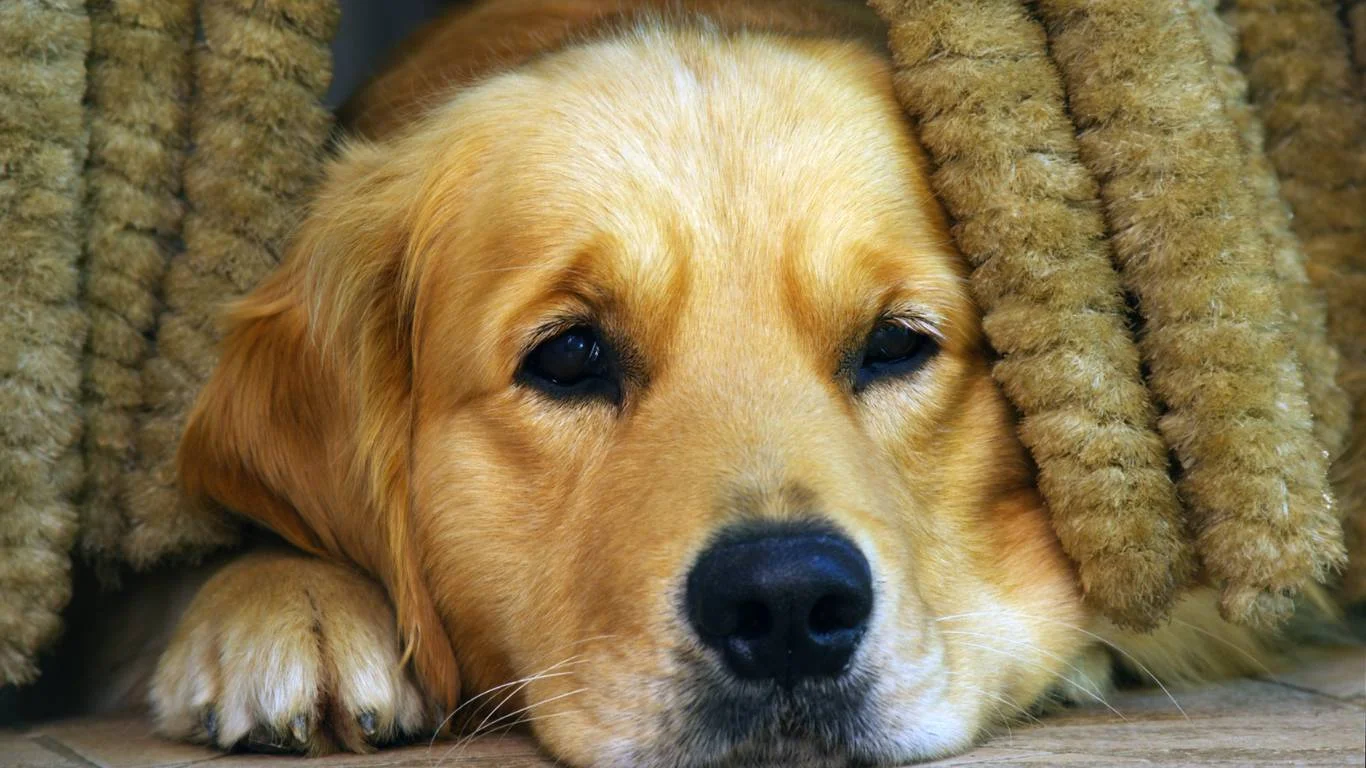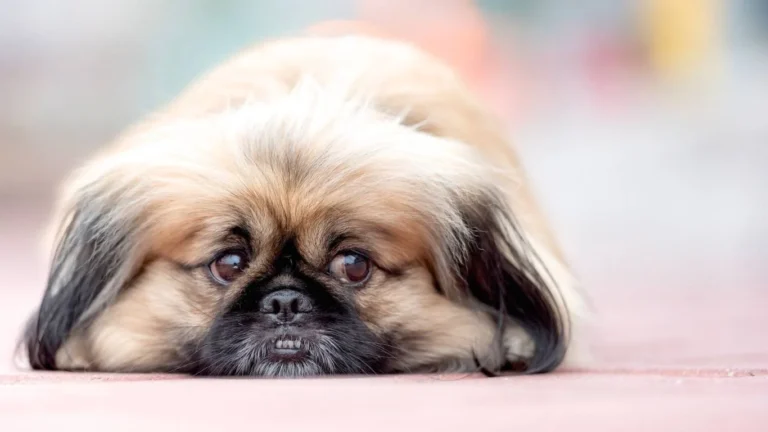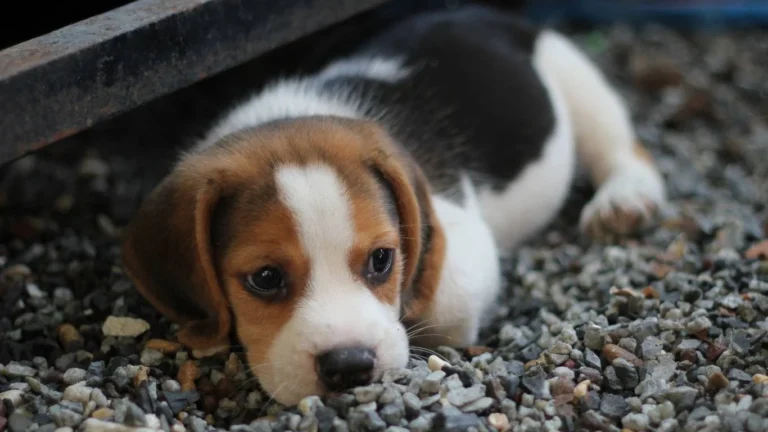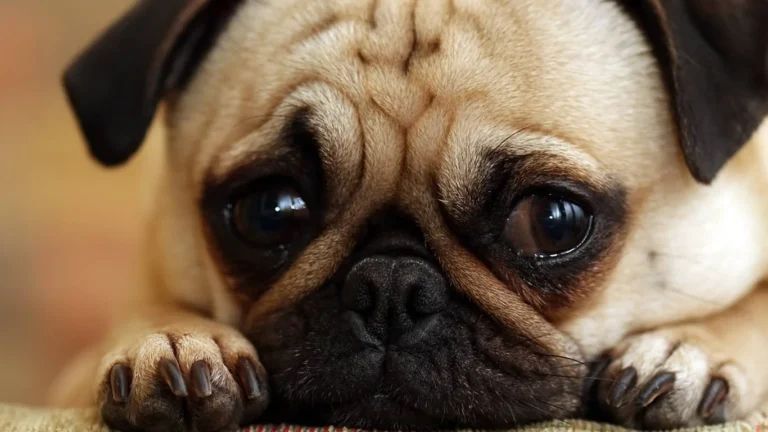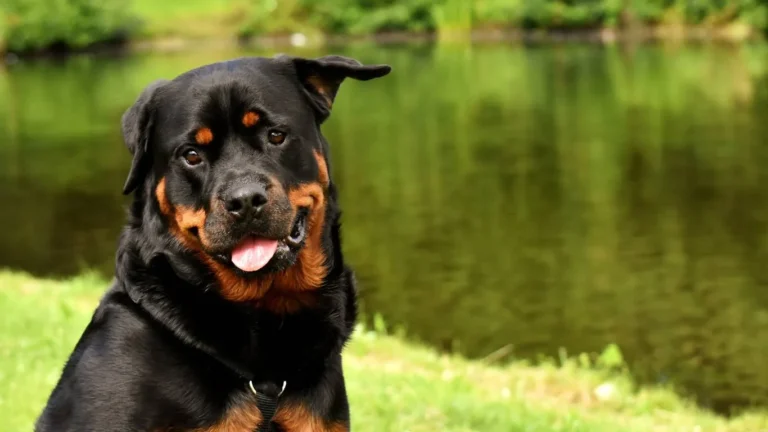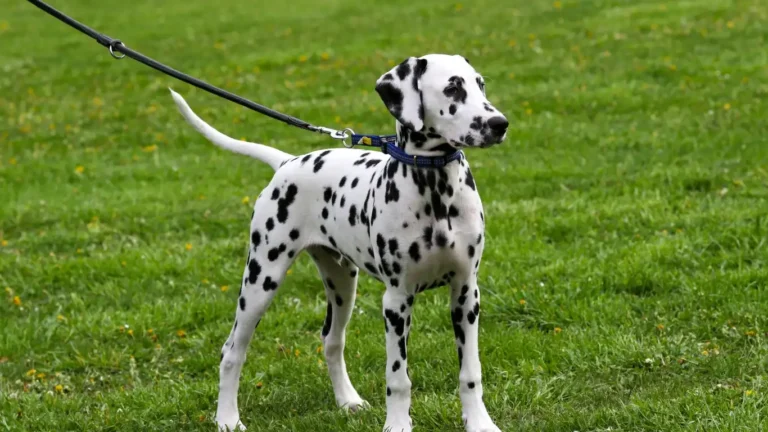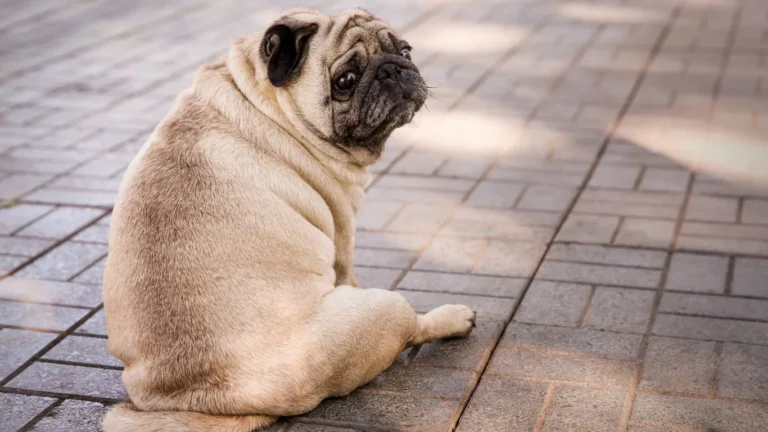Why Is My Dog Breathing Heavily After Eating? Expert Answers & Tips
Ever looked over at your dog after mealtime and thought, “Whoa, why is my dog breathing heavily after eating?” You’re definitely not alone. As a Veterinary Assistant with a focus on nutrition, I’ve had plenty of pet parents come in worried that their furry friend sounds like they just ran a marathon—when all they did was finish their dinner. The thing is, heavy breathing post-meal *can* be totally normal… but sometimes, it’s a red flag. Let’s unpack it together, so you know what’s chill and what’s worth a call to your vet.
Is It Just Excitement or Something More?
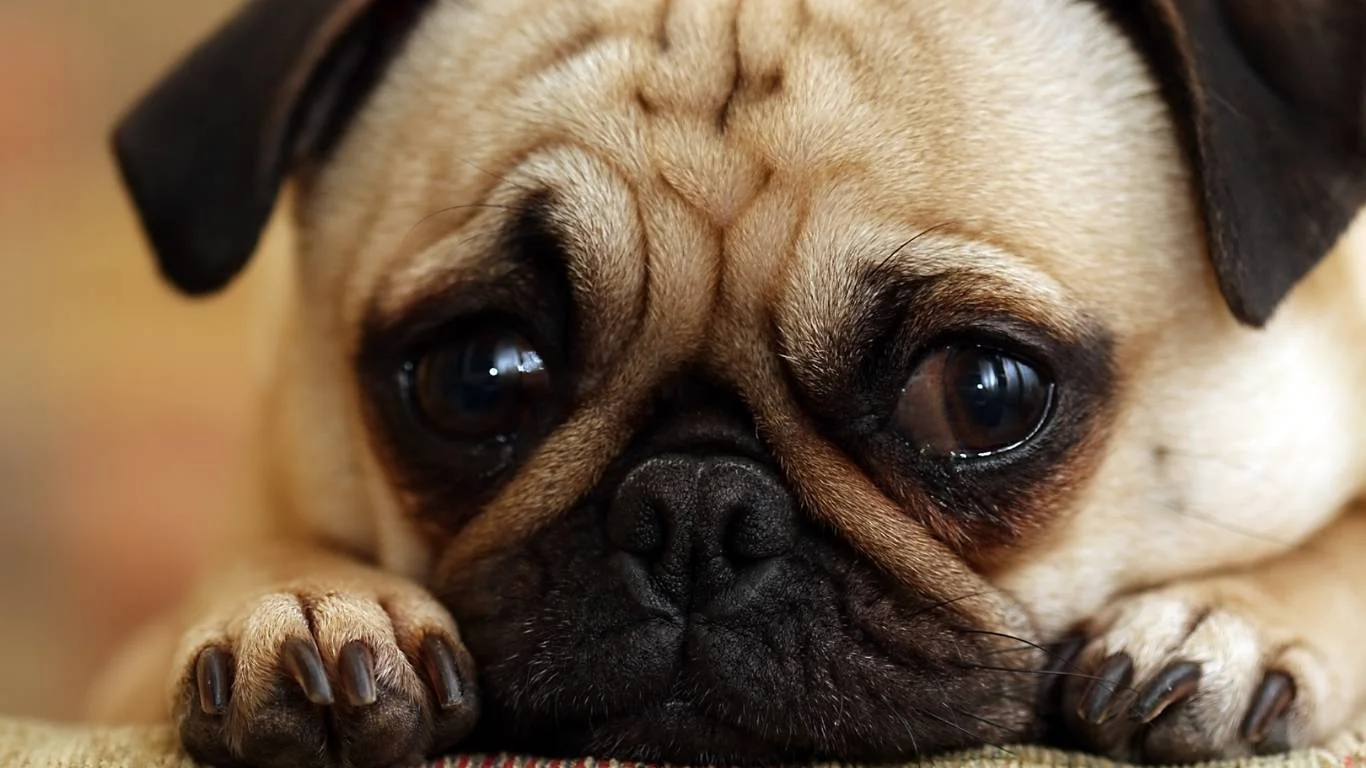
Meal Time Madness: When Food Gets Fido Too Fired Up
Some dogs get *way* too excited about food (same, honestly). I’ve seen pups practically inhale their kibble, then flop down panting like they’ve just done a full cardio session. If your dog’s heavy breathing starts right after eating and settles down in a few minutes, it could just be the result of:
- Overexcitement — especially in puppies or high-energy breeds
- Fast eating — gulping down food can mess with their breathing pattern
- Warm environment — eating in a hot room can raise body temp and cause panting
I once worked with a Labrador who would chow down so fast that he’d start panting like crazy. The solution? A slow feeder bowl. Game changer!
When Should You Worry?
Now, not to be dramatic, but sometimes that heavy breathing isn’t just post-meal drama—it might be your dog’s way of saying, “Hey, something’s off.” If it lingers or happens all the time, keep an eye out. Based on what I’ve seen in the clinic, here are some not-so-fun possibilities:
- Bloat (Gastric Dilatation-Volvulus) — This is a biggie. If your dog’s belly looks bloated and they’re breathing hard, pacing, or trying to vomit without success, get to an emergency vet, fast.
- Obesity — Extra weight puts pressure on the lungs. I’ve met dogs who could barely get through a small meal without breathing heavy because they were so overweight. Not judging—just real talk.
- Heart or respiratory issues — Especially common in senior dogs or brachycephalic breeds (looking at you, Pugs and Bulldogs). Their anatomy makes breathing harder in general, and eating can make it worse.
Why Is My Dog Breathing Heavily After Eating? Let’s Break It Down
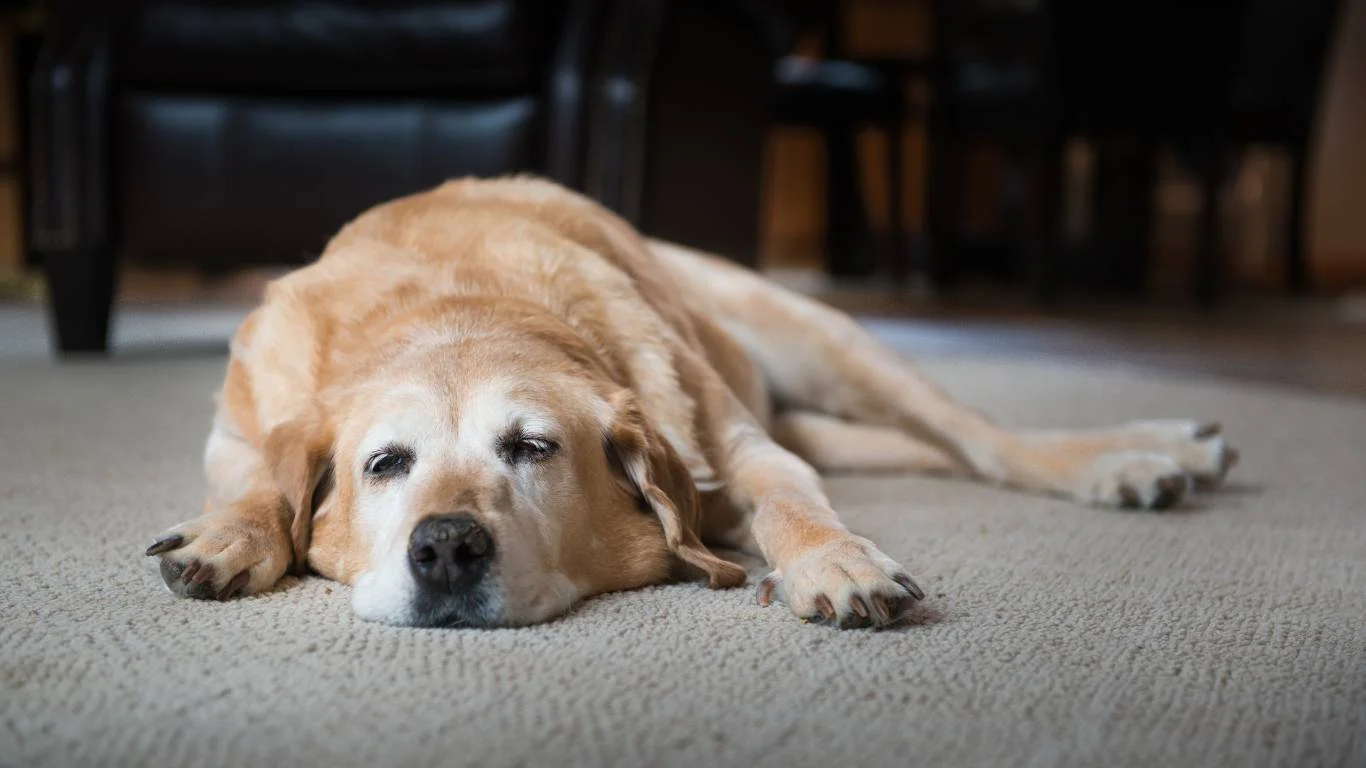
The Role of Breed, Age, and Health Conditions
Not all dogs breathe the same. You know those flat-faced cuties like Frenchies and Boxers? They’re adorable, but their short airways make breathing more laborious—especially when they’re excited or digesting food. I had a senior Pug patient named Max who always huffed and puffed post-lunch. After a full check-up, it turned out his soft palate was contributing to his heavy breathing.
Also, older dogs might have underlying conditions like laryngeal paralysis or collapsing trachea—stuff that can turn dinner into a breathing challenge. And dogs with allergies (yep, food sensitivities too) may experience inflammation that makes things worse.
Let’s Talk About Portion Size and Meal Frequency
Overfeeding is a big culprit in post-meal panting. If your dog eats one giant meal a day, their stomach expands quickly, pressing against the diaphragm and making it harder to breathe. That’s why I often recommend:
- Feeding smaller meals 2-3 times a day
- Using puzzle feeders to slow things down
- Monitoring portion sizes—less is sometimes more, especially for indoor or older pups
Quick tip: Watch your dog for signs of food guarding or stress around meal times. Sometimes the breathing is less about digestion and more about anxiety.
Tools & Tricks I Recommend as a Vet Assistant
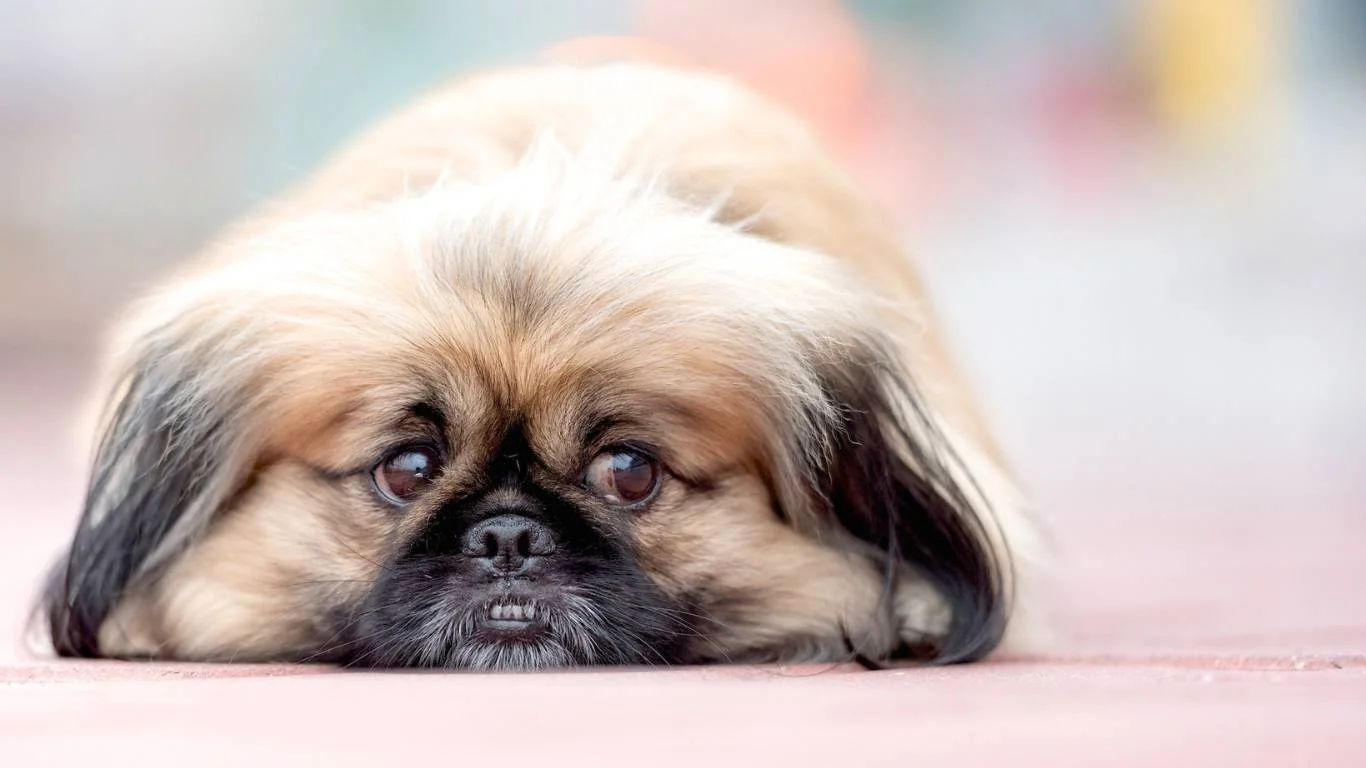
Gear That Can Help With Heavy Breathing After Meals
Over the years, I’ve suggested these go-to fixes for pet parents dealing with heavy breathers:
- Slow feeder bowls — Slows down fast eaters dramatically
- Elevated feeders — Helps some dogs breathe easier while eating
- Cool, quiet eating area — Reduces anxiety and overheating during meals
One of my favorite clients, a sweet Golden Retriever named Luna, went from panting like crazy to calm and collected just by switching to an elevated bowl and splitting her meals into thirds. Easy fix, huge difference.
What Your Dog’s Body Language Is Telling You Post-Meal
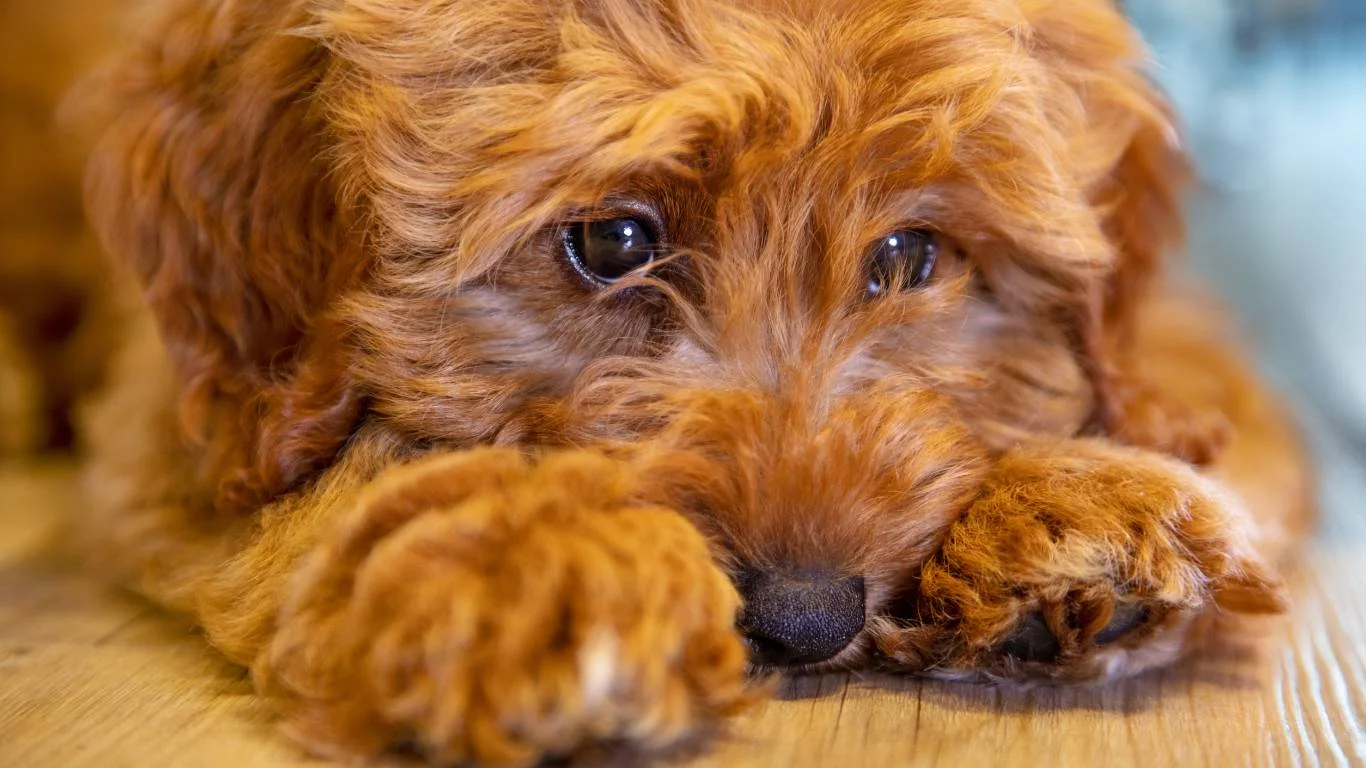
Pay Close Attention to Their Posture and Behavior
So, you’ve noticed your dog breathing heavily after eating—but have you watched *how* they’re acting during those moments? As someone who’s worked hands-on with dogs in clinical settings, I can tell you: their body language speaks volumes.
If your pup is stretching a lot, pacing, or looks uncomfortable lying down, their breathing might be linked to digestion distress. I once had a Boxer patient, Rocky, who would stretch into a play-bow position for a long time after dinner. Turns out, that was his way of easing pressure in his stomach—classic sign of mild bloat discomfort (we caught it early, thank goodness).
Signs to Watch Out For:
- Restlessness or pacing
- Drooling more than usual
- Swollen belly or hard abdomen
- Trying to vomit but nothing comes up
If you see these signs, even if they seem mild, trust your gut. I always tell clients: it’s better to be “that person” who calls the vet for nothing than to ignore something serious.
Feeding Techniques That Reduce Heavy Breathing Risks
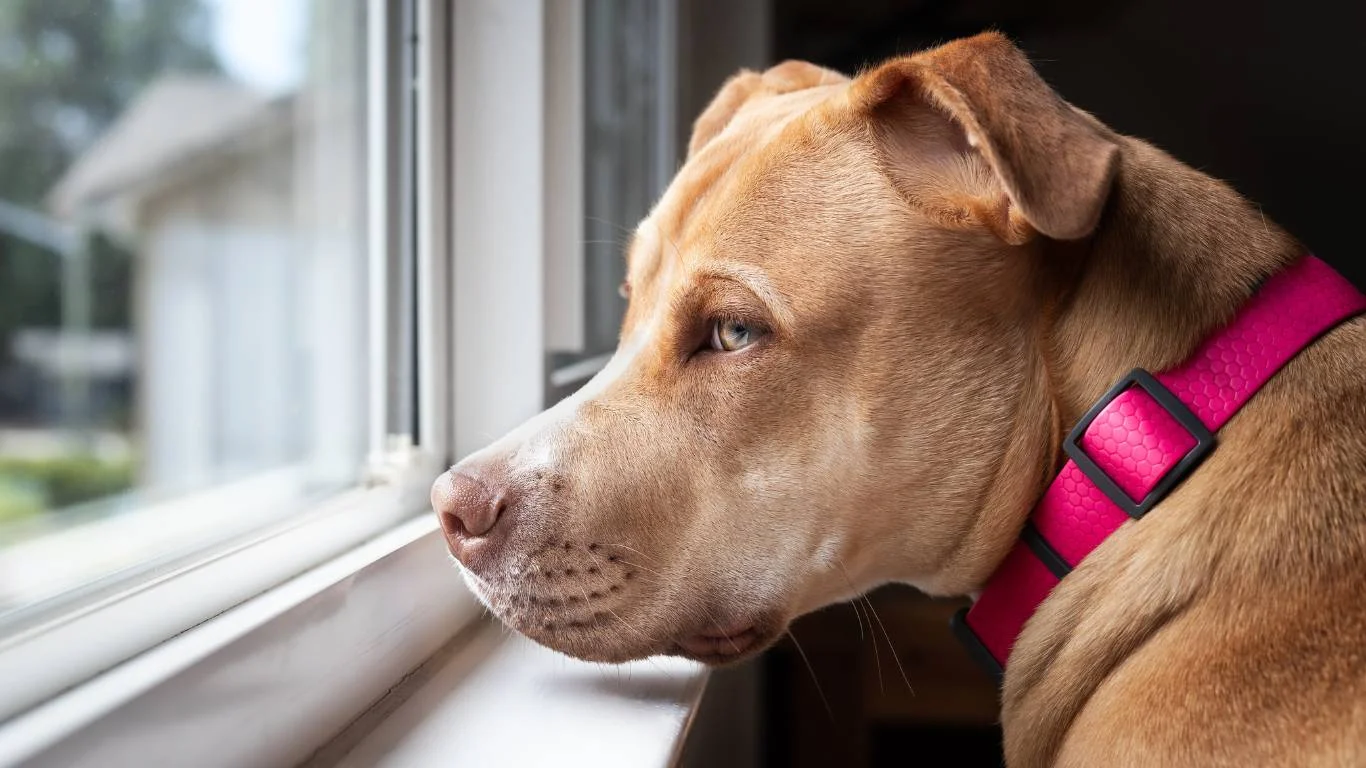
How You Feed Matters Just As Much As What You Feed
Let’s get real: a lot of dogs aren’t exactly polite at the dinner table. They inhale food like it’s their last meal on Earth. That’s where feeding technique comes into play. As a vet assistant, I’ve walked so many dog owners through switching up how they feed—and the changes can be huge.
Here are some tips I’ve personally recommended in the clinic (and used with my own dogs at home):
- Use a slow feeder or puzzle bowl — It slows them down and turns mealtime into a fun challenge.
- Try small, frequent meals — Instead of two big meals, go for three smaller ones spaced out.
- Let them rest before and after eating — No zoomies or fetch games right after meals!
- Monitor water intake — Dogs who guzzle water immediately after food can also have breathing issues due to stomach expansion.
I had a little Dachshund patient named Bailey who used to wheeze and pant after every meal. Turned out she was eating too fast and then racing around the house right after. We slowed her down, added a calm-down routine post-meal, and voilà—no more heavy breathing!
When the Issue Might Be Allergy-Related

Could Your Dog Be Reacting to Their Food?
This one surprises a lot of pet parents, but yes—food allergies and intolerances can mess with your dog’s breathing. It’s not always hives or itching. Sometimes, inflammation in the airway or digestive tract shows up as labored or heavy breathing after eating.
Here’s what I usually tell clients to look for if allergies are a possibility:
- Chronic ear infections or head shaking
- Itchy paws or face rubbing
- Soft stools, gas, or vomiting
- Sudden changes in breathing patterns after eating
If you suspect an allergy, talk to your vet about doing a limited ingredient diet trial. I worked with a German Shepherd named Finn who had trouble breathing post-meal. After we eliminated chicken from his diet (yep, the most common protein culprit), he was like a new dog—no more panting fits.
When to Call the Vet: Red Flags You Shouldn’t Ignore

Sometimes It’s Urgent—Here’s How to Tell
Alright, I know we’ve covered a lot. But here’s the truth: not every case of heavy breathing after eating is a “wait and see” situation. Some require immediate medical attention.
Call your vet immediately if your dog:
- Has a distended belly and is breathing rapidly
- Collapses or appears dizzy or unsteady
- Is retching or gagging with no vomit
- Gums appear pale or blue (oxygen issue)
- Breathing sounds wet, raspy, or gurgly
In my years on the job, I’ve seen how fast things can go south. Trust your instincts. If something feels off, don’t wait. Call your vet or an emergency animal clinic. Even if it turns out to be nothing serious, you’ll have peace of mind—and that’s priceless.
Long-Term Management: Helping Your Dog Breathe Easier After Meals
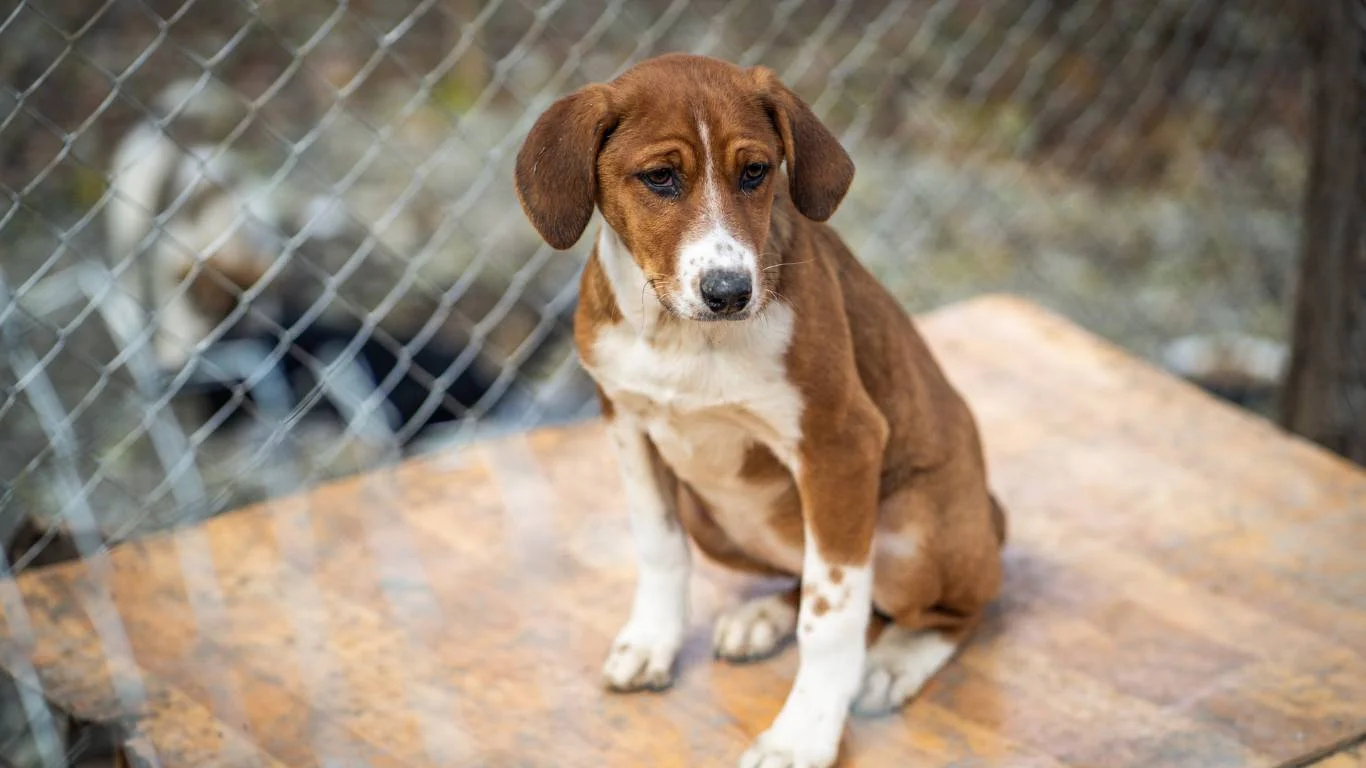
Consistency Is Key
From my years working in veterinary care, one thing is clear: managing heavy breathing after eating isn’t usually a one-time fix. It takes patience, consistency, and sometimes a bit of trial and error to figure out what really helps your dog feel comfortable and safe.
Here’s what I recommend for long-term management, based on both professional experience and personal dog-owner lessons:
- Keep meal times calm and quiet. Avoid chaotic environments or distractions that might cause your dog to gulp their food or get overly excited.
- Stick to feeding routines. Dogs thrive on routine, especially when dealing with digestive or respiratory issues. Feeding at the same times each day can help regulate digestion and reduce anxiety-related heavy breathing.
- Adjust diet as needed. Work with your vet or a veterinary nutritionist to find a diet that suits your dog’s specific health conditions, whether that’s weight management, allergies, or sensitive digestion.
- Incorporate gentle post-meal rest. Encourage your dog to relax for 20-30 minutes after eating. No running, jumping, or roughhousing immediately after food—this really helps reduce respiratory stress.
When I helped a senior Golden Retriever named Maggie transition to smaller, more frequent meals and a quieter feeding spot, her post-meal breathing improved so much that her owner couldn’t believe it. Sometimes, small changes are all it takes.
When Medication or Medical Intervention May Be Necessary
Sometimes heavy breathing after eating points to an underlying medical issue that needs more than just lifestyle tweaks. In these cases, your vet might suggest:
- Medications to ease inflammation or allergies
- Specialized treatments for respiratory issues
- Surgery in rare cases, such as correcting anatomical abnormalities
In my time assisting veterinarians, I’ve seen dogs recover beautifully with the right care plan, but it’s important to get a thorough diagnosis first. Never hesitate to ask your vet questions—your dog’s health depends on clear communication and proactive care.
Preventing Heavy Breathing After Eating: Tips That Work
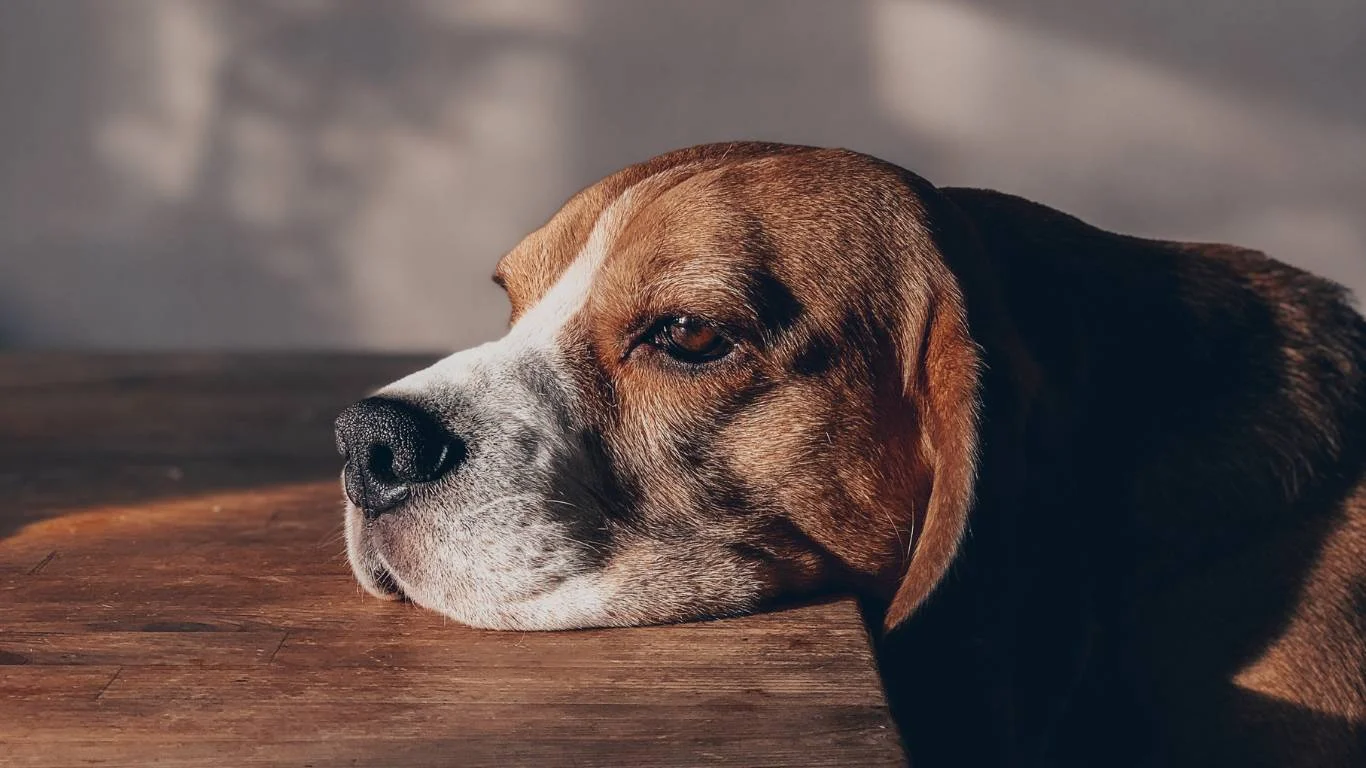
Simple Habits That Make a Big Difference
Prevention is honestly the best medicine. Here are some quick and easy tips from my experience that can help your dog avoid heavy breathing and stay comfortable after meals:
- Feed smaller, more frequent meals. This keeps their stomach from getting overloaded and reduces pressure on their diaphragm.
- Use slow feeders or food-dispensing toys. These tools slow down eating and mentally engage your dog, which can lower stress.
- Maintain a healthy weight. Extra pounds can compress the chest and make breathing more difficult after eating.
- Keep your dog hydrated, but avoid excessive water immediately post-meal. Sip water gently to avoid stomach bloat.
- Monitor your dog’s environment. A cool, calm place for eating can prevent overheating and anxiety-related panting.
I remember advising a client with a nervous Border Collie who’d pant heavily after meals. By combining a quiet space with a slow feeder and smaller portions, her breathing normalized, and her overall stress dropped. It really shows how the right setup can be a game-changer.
Additional Resources & Expert Advice
For further reading and trusted veterinary advice on your dog’s respiratory health and nutrition, here are some excellent resources that I often recommend:
- American Veterinary Medical Association (AVMA)
- American College of Veterinary Internal Medicine (ACVIM)
- American Animal Hospital Association (AAHA)
- World Small Animal Veterinary Association (WSAVA)
Disclaimer
This article is intended for informational purposes only and does not replace professional veterinary advice, diagnosis, or treatment. If your dog is experiencing persistent heavy breathing, especially after eating, please consult a qualified veterinarian immediately. Early diagnosis and treatment can save lives. Always follow the guidance of your pet’s healthcare provider regarding their health and nutrition.
